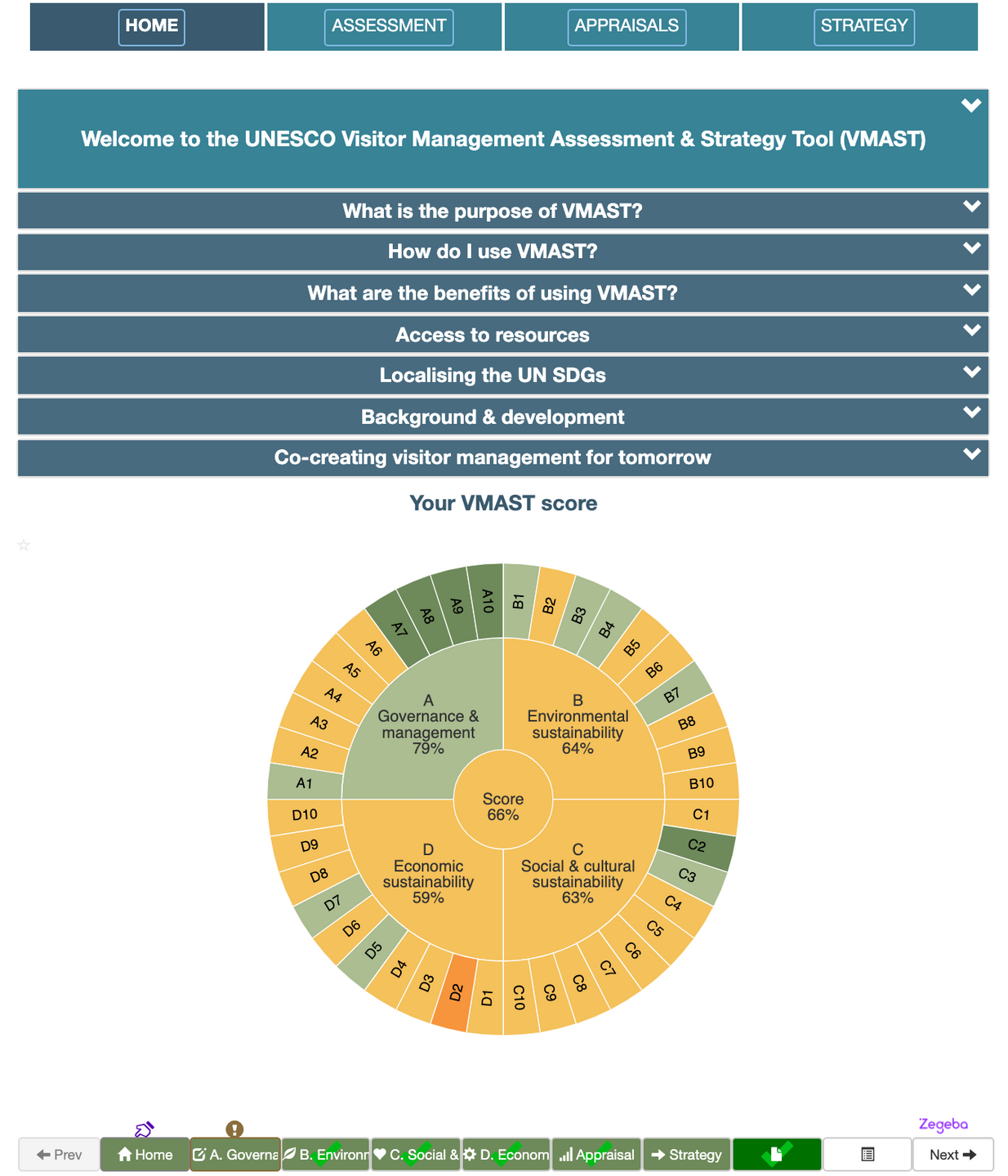- the Visitor Management Assessment & Strategy Tool

The Visitor Management Assessment & Strategy Tool (VMAST) is the newest addition to the UNESCO World Heritage Sustainable Tourism Programme and Toolkit. Developed within the context of UNESCO's World Heritage Convention (1972) VMAST helps site and destination management authorities proactively manage visitation and tourism for protection of heritage values while enhancing community sustainability and resilience.
VMAST is hosted and supported by Zegeba in collaboration with World Heritage Catalysis.
VMAST is free to World Heritage sites through UNESCO, and available to everyone else against a hosting fee.
Access VMASTBenefits of using VMAST
Improving practice through five management activities
Monitoring
> Improved understanding
Use of VMAST will help you monitor and better understand the current state of your site’s visitor management, and identify what could be done to improve management to protect the heritage values of the site and contribute to local sustainable development objectives.
Budgeted activities
> Feasible ambitions
Through a focus on the need to budget for activities VMAST support the feasibility of your strategic ambitions.
Communication
> Improved outreach
Use of VMAST will help you effectively, and in a culturally appropriate manner, communicate with relevant stakeholders.
Capacity development
> Strengthened capacities
Use of VMAST will help you identify ways to engage with relevant stakeholders to strengthen capacities towards the achievements of identified sustainability and development objectives.
Collaboration
> Increased impact
Stakeholder collaboration and partnerships are essential for the protection of the site and for the benefit of the broader destination. The VMAST provides a framework to enhance engagement and dialogue with local and national authorities, rights-holders and other relevant stakeholders.





